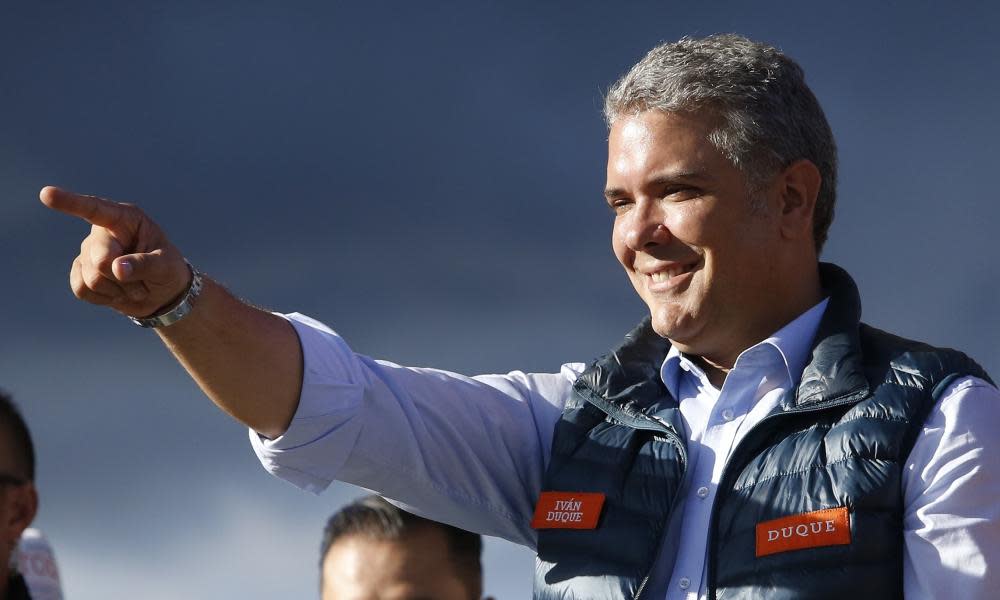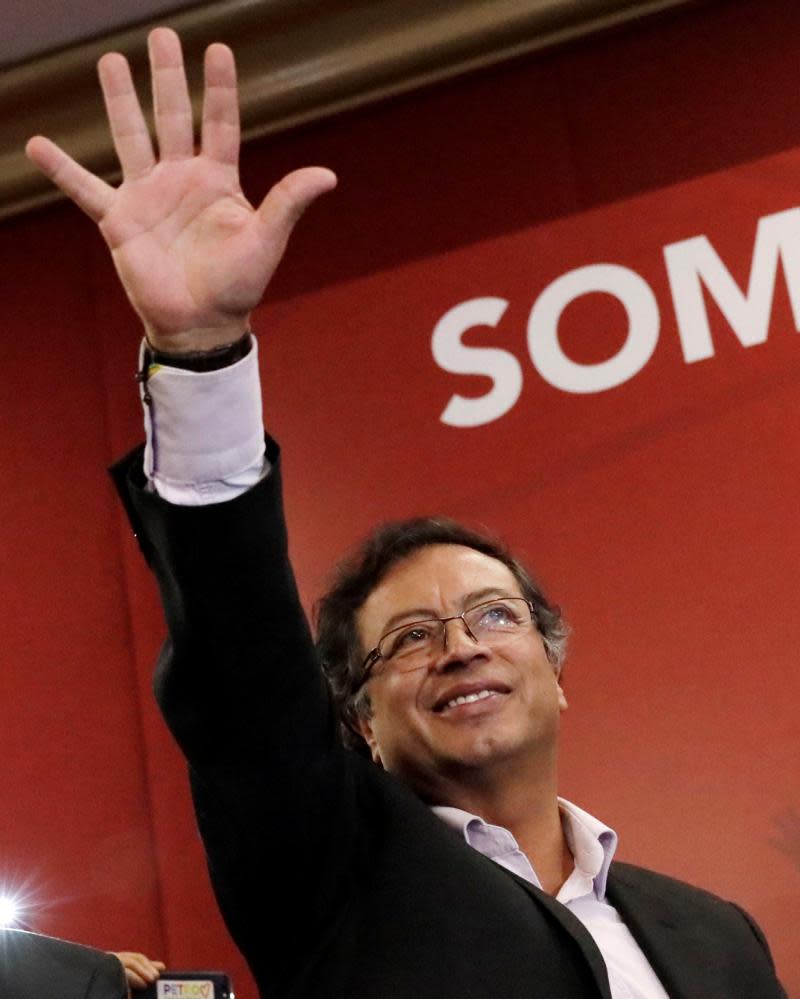Colombians vote for new president in wake of Farc peace process

Colombia is heading to the polls to choose a president in an election that could prove decisive for the country’s embattled peace process with the Farc leftist guerrillas.
Colombians will choose between five prominent candidates from across the political spectrum, with the hardline conservative Iván Duque a clear frontrunner in the polls. The leftist Gustavo Petro is polling second, setting up a possible runoff vote on 17 June should no hopeful win over 50% of the vote on Sunday.
The more mainstream candidates – Sergio Fajardo, Humberto de la Calle and Germán Vargas Lleras – are all polling badly, indicating a polarised electorate.
While economic reform, pledges to weed out corruption and the crisis in neighbouring Venezuela have all been talking points in the run-up to the election, few issues divide voters like the peace process.
Colombia’s outgoing president, Juan Manuel Santos, reached a deal with the Farc, or the Revolutionary Armed Forces of Colombia, in late 2016 to end five decades of war which left more than 220,000 dead and 7 million displaced.

However, despite international plaudits and a Nobel peace prize, Santos never managed to sell the deal at home, where the accord failed to pass a public referendum before being amended and ratified in Congress.
Those revisions were not enough to assuage the concerns of many Colombians who felt that light sentencing for war crimes and guarantees of seats for the Farc in Congress were too high a price for peace. Those voters have another opportunity to register their grievances on Sunday.
“If Duque wins, the peace process will be in doubt,” said Adam Isacson, a Colombia expert at the Washington Office on Latin America, a US thinktank. He said many Duque supporters were wealthy landowners whose interests would be hit by the peace deal’s promise for rural reform. “The biggest part of the accord could just go into the trashcan,” Isacson said.
A recent Gallup poll found confidence in the national government was at a record low – just 22% – though it remains to be seen if that will hurt Duque, who has the vocal backing of Santos’s predecessor Álvaro Uribe, one of the peace deal’s fiercest critics.
Petro, himself a former rebel with the long-defunct M-19 group, is the first leftist in generations with a shot at the presidency, in large part thanks to the following of young voters attracted by his anti-establishment platform.
Petro’s critics worry he will abandon Colombia’s market-friendly attitude, with some saying he will ape the policies of Hugo Chávez, the late Venezuelan president whom some blame for that country’s economic turmoil and the influx of a million Venezuelans into Colombia. Petro was once a vocal supporter of Chávez.
Though Petro supports the peace process, observers doubt he has won over enough moderates to win the election. Even so, his candidacy is seen as a testament to the peace process, because previously leftists would be associated with the Farc. “The peace process has created a lot more space for the political left,” Isacson said.

 Yahoo News
Yahoo News 
